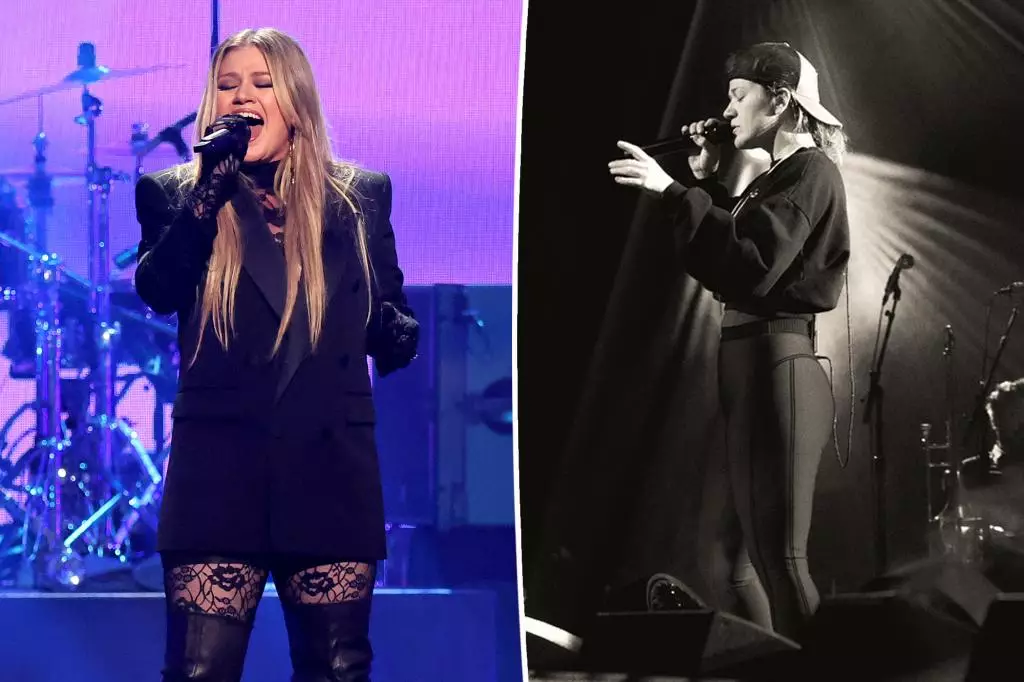In the realm of live entertainment, few acts evoke as much passion and expectation as a highly anticipated concert. When a performer cancels or postpones at the eleventh hour, it not only disappoints the audience but also exposes the fragile balance between artistic integrity and fan loyalty. Kelly Clarkson’s recent decision to postpone her Las Vegas residency opening night just 90 minutes before showtime underscores this delicate tension. Fans who traveled great distances and invested significant resources face feelings of betrayal, frustration, and financial loss. Their reactions, shared vividly across social media, reveal a darker truth about the vulnerability of live performances: the reliance on artists’ health and circumstances can sometimes clash with audience expectations for reliability and commitment.
This incident prompts a critical reflection on the responsibilities artists hold—especially when their career milestones are publicized far in advance. While health concerns are inevitable and legitimate reasons for cancellations, the timing of such announcements can exponentially impact fans. Giving notice well ahead of time allows for partial refunds, rebooking opportunities, and mitigates some of the financial and emotional damage inflicted on those who show unwavering support. Clarkson’s last-minute cancellation raises questions about whether the industry adequately compensates fans for these unpredictable circumstances or if a system of repercussions should be enforced to balance artistic self-care with consumer rights.
Artists’ Well-being Versus Fan Loyalty
Clarkson’s candid explanation highlights a key aspect often overlooked: the physical toll that touring and rehearsing take on performers. Her statement about voice strain and the need for rest demonstrates her commitment to delivering a high-caliber show rather than risking long-term damage. From her perspective, protecting her health is paramount, yet this decision weighs heavily on her fans who had eagerly anticipated a “perfect” performance. The dilemma faced by artists is complex: how to uphold their professional standards while managing their health and personal boundaries.
In that sense, Clarkson’s choice to prioritize her well-being aligns with a broader shift happening within the entertainment industry—one that recognizes mental health and physical safety as essential. However, criticism emerges when fans feel uncertainty about the consistency of artists’ commitments. It poses a question: should artists be required to provide insurance or guarantees that similar incidents won’t occur, or is there an inherent risk in the unpredictability of live performances? Clarkson’s scenario illustrates that the line between genuine necessity and perceived inconsistency can be blurred, complicating her relationship with loyal audiences.
The Industry’s Responsibility and Future Perspectives
This episode also nudges industry stakeholders to consider more structured approaches to managing cancellations. Insurance policies for performers, better communication strategies, and refund policies could create a safety net for disappointed fans and bolster trust in the live entertainment ecosystem. Notably, fans’ reactions ranged from understanding to outright criticism, exposing how public perception hinges on transparency and the perceived fairness of the artist’s actions.
Furthermore, Clarkson’s situation shines a light on the broader implications of a multi-faceted career. Her commitments extend beyond the stage, evidently balancing a successful music career, her role as a talk show host, and personal health. The choice to delay her residency, and her upcoming plans to conclude her talk show in 2026, echo a common challenge among celebrity figures—how to sustain multiple ventures without sacrificing personal health and authenticity.
In the end, Clarkson’s postponement should be viewed within the spectrum of artistic self-preservation. While fans have every right to feel disappointed, their understanding and empathy can foster a more compassionate culture within the entertainment scene. Artists like Clarkson exemplify that prioritizing health isn’t a sign of weakness but an essential act of self-respect—an increasingly vital lesson in a high-pressure industry that often blurs the lines between performance and personal endurance.

